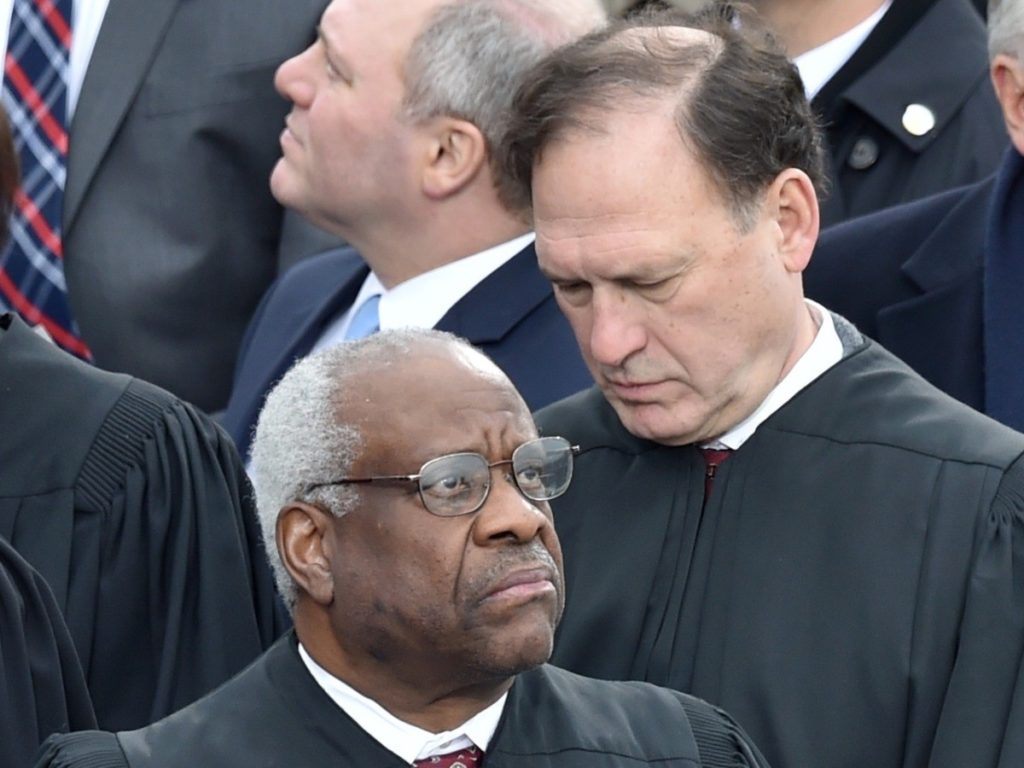Dark money is the best infectant

In Citizens United, Kennedy suggested that unlimited corporate spending on elections could be countered by laws requiring donor disclosure. This wasn’t very plausible to begin with. But Scalia (who strongly believed that disclosure requirements were constitutional) died, Kennedy retired strategically, and Ruth Bader Ginsburg did not. Clarence Thomas, who believes that big campaign donors are similarly situated to the NAACP in Jim Crow Alabama, is still around. You can see where this is going:
Conservatives were not, however, always opposed to disclosure requirements: Justice Antonin Scalia argued in his concurrence in Doe v. Reed that people who want to try to change a state’s laws should be willing to stand up for their views, even if it means harsh criticism and opposition. And while threats and intimidation are illegal, Scalia noted that the First Amendment protects attempts to change the law, people criticizing the proposed changes and the people proposing them. “Harsh criticism, short of unlawful action, is a price our people have traditionally been willing to pay for self-governance,” Scalia argued, and people trying to affect public policy should not expect to be “hidden from public scrutiny and protected from the accountability of criticism.”
Scalia and Kennedy, however, are gone from the court — and Justice Clarence Thomas’ solo dissent in Doe v. Reed, rather than the words in Citizens United, has ultimately been far more influential on the right. Thomas claimed in Doe v. Reed that “the state of technology today creates at least some probability that signers of every referendum will be subjected to threats, harassment, or reprisals if their personal information is disclosed.” As a result, he said, the First Amendment generally protects the privacy of petition signers and donors.
Critically, Thomas’ view about the question of disclosure — i.e., there should not be any — is also reflected in the actions of congressional Republicans. Acting at Kennedy’s invitation in Citizens United, House Democrats in 2010 passed the Democracy Is Strengthened by Casting Light On Spending in Elections (DISCLOSE) Act, which would have required transparency from major spenders on political campaigns. But the bill was filibustered by Senate Republicans, who have consistently thwarted all subsequent attempts to revive the legislation.
Now it appears that, with the two disclosure cases from California, the Supreme Court’s other Republican members will move most or all of the way toward Thomas’ position. If they do, the influence of the “dark money” described in Jane Mayer’s classic book will only increase, as the court will not only have eliminated limits on campaign spending by deep-pocketed people, groups and corporations, but also allowed them to wield their influence without any public transparency.
Neither would be good news for American democracy.
Fortunately, according to the Roberts Court nothing but explicit quid pro quo bribes can represent a conflict of interest or even the appearance of a conflict of interest, so there shouldn’t be any problem.
